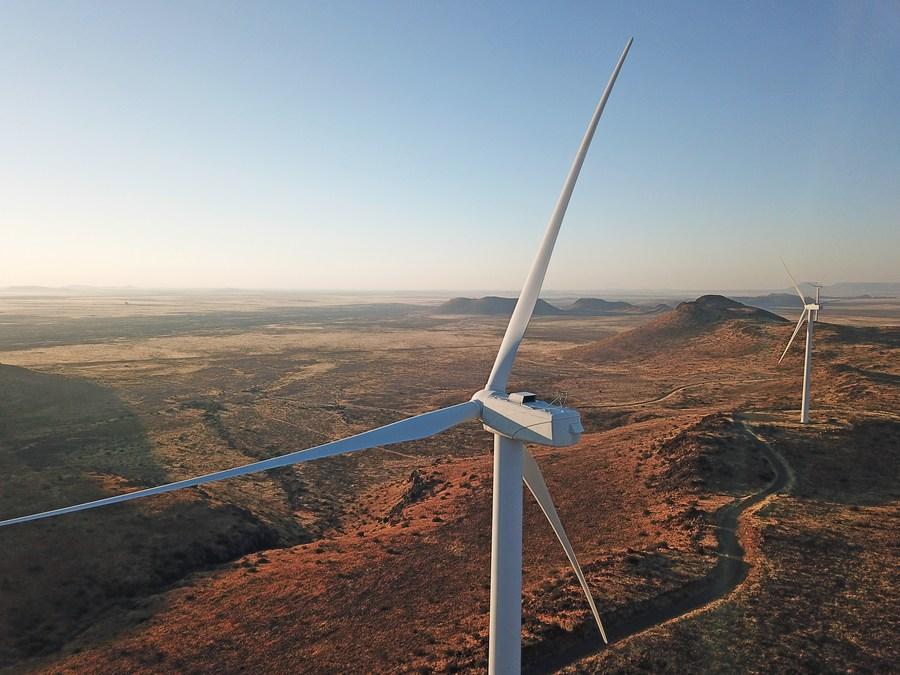By Xin Ge
Prior to the 15th BRICS Summit in Johannesburg on August 22-24, Chinese President Xi Jinping embarked on his state visit to South Africa and engaged in discussions with his South African counterpart Cyril Ramaphosa regarding the future of China-South Africa partnerships.
This year commemorates the 25th anniversary of diplomatic relations between the two countries. Moreover, President Xi's visit this week marks his sixth trip to the promising land of the "rainbow nation," which is used to highlight cultural diversity in the country.
In a signed article entitled "Sailing the giant ship of China-South Africa friendship and cooperation toward greater success," which was published on Monday by South African media, President Xi reflected upon the remarkable progress in bilateral ties, which is now evolving into a comprehensive strategic partnership. Notably, President Xi asserted that this relationship represents one of the most dynamic bilateral associations within the developing world whilst remarking about its entrance into a "golden era" imbued with immense potential and a promising trajectory for the future.
China and South Africa enjoy a robust economic relationship. China is currently South Africa's largest global trading partner and has maintained this position for an impressive 14 consecutive years while South Africa proudly stands as China's foremost trading partner in Africa for 13 consecutive years.
The success of this relationship is evident as South Africa has managed to attract over 200 Chinese companies spanning various industries including finance, automobiles, mining and energy, among others. The cumulative investment value of these enterprises exceeds $25 billion, showcasing the immense trust and confidence that Chinese firms have placed in the South African market. Chinese firms have created more than 400,000 local jobs with South Africa and Chinese appliances, automobiles and smartphones favored by the local people.

Wind turbines of China-built De Aar Wind Power Project in De Aar, South Africa, July 27, 2020. [Photo/Xinhua]
Right now, standing at a new historical starting point, both countries are eager to deepen their cooperation. In pursuit of this goal, President Xi has highlighted four key dimensions in which bilateral relations can be further reinforced.
To begin with, China and South Africa could be strategic partners based on a foundation of mutual trust. As President Xi emphasized, the depth of the China-South Africa friendship derives from the shared experiences and challenges both countries have faced along their respective developmental paths. To fortify this bond, it is imperative for both countries to enhance exchanges across a wide spectrum of areas including legislative institutions, political parties, military forces and local governance.
Additionally, both are committed to continuing their unwavering support for each other's core interests and major concerns. China is keen to strengthen inter-party exchanges and training cooperation with South Africa. In line with this, China is willing to extend its assistance to the African National Congress in building the African Leadership Academy.
Secondly, China and South Africa could be partners seeking mutual advancement. South Africa was the first African country to join the Belt and Road Initiative (BRI). Both sides are committed to exploring opportunities for bilateral cooperation and aligning efforts within the BRI and the Economic Reconstruction and Recovery Plan frameworks, while cultivating new areas of collaboration.
China pledges to expand imports of South African products while encouraging more Chinese enterprises to invest in South Africa. Recognizing that poverty is still a main challenge facing South Africa, China stands ready to help the country to implement the poverty reduction demonstration village project with its ample experience in poverty alleviation and rural revitalization.
Furthermore, Xi elaborated on the necessity of closer people-to-people exchanges. China is willing to make good use of mechanisms such as the China-South Africa vocational education alliance to promote youth employment and cultivate diverse talent vital for South Africa's social and economic development. Meanwhile, China and South Africa could strengthen collaboration in the tourism sector and support joint technological research.
Last but not the least, China and South Africa should be global partners in championing justice. Beijing stands prepared to support South Africa to play a bigger role in international affairs, to join the developing world to practice multilateralism and work together to implement the Global Development Initiative, the Global Security Initiative, and the Global Civilization Initiative. It is hoped that collaboration can be intensified on issues such as climate change, food security and the UN 2030 Agenda for Sustainable Development, thereby safeguarding the shared interests of the developing countries.
Undoubtedly, suggestions in these four dimensions will not only propel the comprehensive strategic partnership between China and South Africa towards greater development but also increase the representation and influence of Global South countries in global governance. These recommendations will infuse new and vigorous momentum into deepening the unity of BRICS countries and advancing bilateral relations between China and South Africa to new heights.
Xin Ge, a special commentator on current affairs for CGTN, is an associate professor at the School of Public Economics and Administration, Shanghai University of Finance and Economics.

 中文
中文



